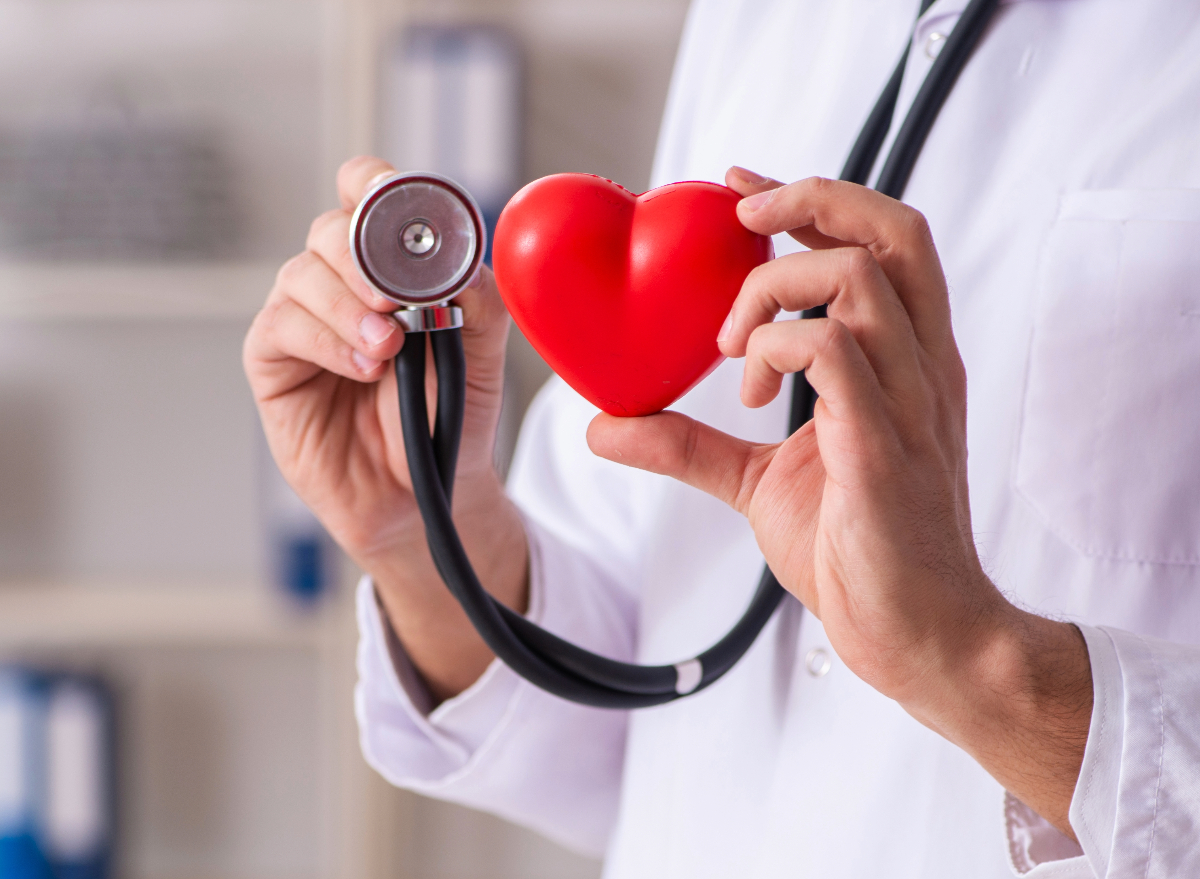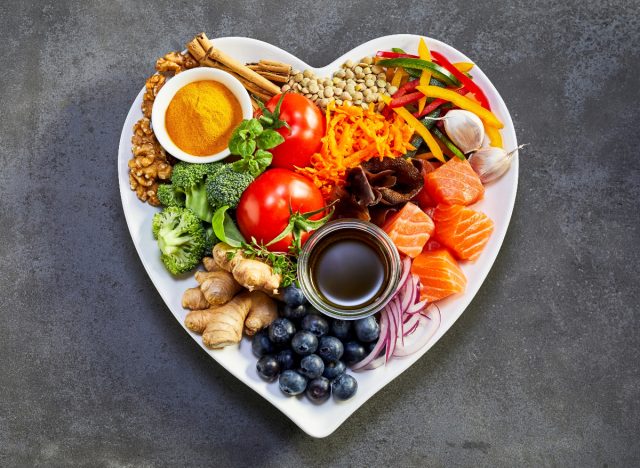The #1 Thing a Cardiologist Does Every Day for Better Heart Health

It’s important to love your heart to improve your chances of it loving you back. There are many healthy habits you can incorporate into your daily routine, and we went straight to the source to learn a few things. Eat This, Not That! spoke with Elizabeth Klodas, MD FACC, a board-certified cardiologist, author, speaker, the founder of the Preventative Cardiology Clinic near Minneapolis, Minnesota, and the founder and chief medical officer of Step One Foods, to discover the #1 daily habit for better heart health, according to a cardiologist.
Your heart is one of the most important organs in your body. This muscle pumps blood throughout your body, and the blood, in turn, gives your body the nutrients and oxygen it requires to work properly. According to the Centers for Disease Control and Prevention (CDC), heart disease is actually the primary cause of mortality for both women and men in the United States. In addition, one person passes away every 33 seconds in this country from cardiovascular disease.
It’s critical to care for your heart and address any risk factors that can lead to heart disease, such as obesity, diabetes, smoking, an unhealthy diet, high blood pressure, and physical inactivity, per the CDC. So read on to learn the #1 daily habit for better heart health, according to a cardiologist. And when you’re finished, be sure to check out People Swear by the ‘3-2-1’ Method for a Slim Waist: ‘Changed My Life’.
This is the #1 thing a cardiologist does every day for better heart health.

Dr. Klodas has much to say about TLC for one’s heart. However, the most important habit she emphasizes on a daily basis is eating a well-rounded diet to get all of the proper nourishment she needs. “I simply try and eat a really well-rounded diet,” she tells us. “I focus on consuming whole, real foods primarily from the plant end of the food continuum. I eat plenty of beans and legumes, whole grains, leafy greens, fruits and vegetables, nuts, and seeds. I also eat fish and some eggs. I eat plain low-fat Greek yogurt almost every day, and I have cheese from time to time. I generally avoid all meats.”
Why is a well-balanced diet so important for your heart?
The bottom line is, you should make everything you eat count, and choose wisely. For instance, the Mayo Clinic recommends reducing the amount of saturated and trans fats in your diet to keep your blood cholesterol in check and decrease your chances of developing coronary artery disease. An elevated blood cholesterol level can result in plaque buildup in the arteries, known as atherosclerosis. This can heighten your chance of suffering from heart attack or stroke.
The Mayo Clinic recommends prioritizing fruits and veggies, low-fat protein sources (eggs, fatty fish, legumes, skinless poultry, lean ground meats, and low-fat dairy products), and whole grains (whole-grain bread, whole-wheat flour, high-fiber cereal, oatmeal, and whole-grain pasta).
“Common nutrient deficiencies among patients with or at risk for heart disease include fiber, omega-3 fatty acids, antioxidants, and plant sterols (natural plant components helpful for cholesterol management),” Dr. Klodas explains. “Fiber and plant sterols reduce cholesterol absorption, omega-3 fatty acids help lower triglycerides and help prevent blood clots, while antioxidants fight the free radicals and inflammation that are key contributors to plaque buildup … [they are] plentiful as part of a whole food plant-based diet.”









